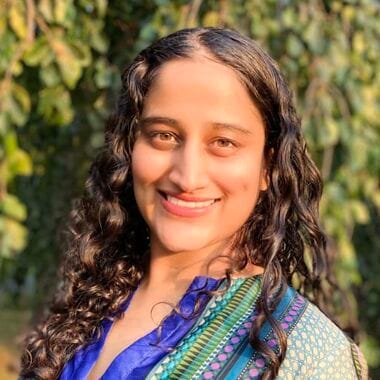Fatema Basrai
San Antonio '12
Schools are the cornerstones of their communities. Students carry with them the struggles their parents and communities wrestle with. That’s what Fatema Basrai, a San Antonio 2012 Teach For America alum, learned in her teaching experience. Among the more common challenges she saw was a lack of access to public health resources like healthy food, safe community spaces, and access to quality medical care. Now, as the managing director of InnovateHealth Yale and the Sustainable Initiative at the Yale School of Public Health, Fatema works to support health solutions that address gaps in under-resourced communities.
- Grade and Subject Taught: Elementary English language arts
- Current Sector: global health and higher education
- Major/Alma Mater: Bachelor of Science in Advertising from the University of Texas; Master of Business Administration from the University of Texas at San Antonio
- Pronouns: she/her/hers
How did your corps experience play a role in shaping your career trajectory?
I currently work in the global health innovation space and my experience with Teach For
America (TFA) has been instrumental in shaping my career trajectory. TFA exposed me to the profound connection between educational inequities and health disparities, influencing my commitment to addressing these interconnected challenges. Now, my professional focus involves finding and supporting innovative solutions to global health challenges and fostering a more inclusive and healthier society.
What skills did you develop as a teacher in the corps that you still use today?
I developed a multifaceted set of skills as a teacher that have proven invaluable in my current professional endeavors. Juggling diverse responsibilities, from lesson planning to addressing individual student needs and managing classroom dynamics, honed my ability to navigate complex situations efficiently.
This experience significantly evolved my perception of the teacher's role beyond conventional academic instruction. Today, in my global health innovation role, these skills continue to be important as I navigate the multifaceted challenges of addressing health disparities using innovative solutions.
Share some of the biggest highs and lows during your time teaching.
One of the most rewarding highs during my time teaching was witnessing the transformative power of education in the lives of my students. A significant source of joy was an experience with a student, let’s call him “L,” who initially expressed a huge dislike for reading.
Determined to instill a love for books, I tailored lessons to capture his interests, incorporating engaging stories and activities. As the year progressed, I noticed a gradual change in L’s attitude. On the last day of school, L excitedly showed me a backpack filled with books he checked out for the summer!
On the other hand, a low was when a student’s home was destroyed in a fire. The housing insecurity that student grappled with, coupled with other challenges like food insecurity, highlighted the harsh realities some kids were dealing with outside the classroom. These ups and downs reinforced why I needed to consistently be there for my students. The wins motivated me, and the tough moments reminded me of the importance of providing support beyond academics.
What are some suggestions or action steps today’s generation can take to make a difference?
Be kind. You don’t have to do big things to have an impact. In my view, initiating change doesn't always require grand gestures; sometimes, small acts of kindness can have a profound impact.
Simple gestures, such as being kind to others, actively listening, and offering support, can create a ripple effect that contributes to a more positive and inclusive community. It's crucial to recognize that change begins on an individual level, and by approaching even the smallest actions with genuine care and consideration, we can collectively create a world where positive change is possible.
